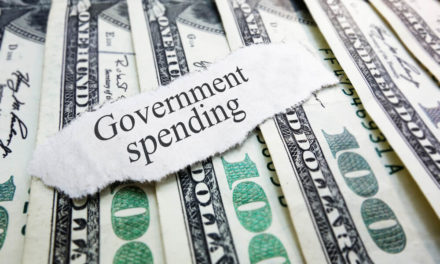Bank of England Governor Mark Carney warned Friday that developments surrounding Brexit are “the most significant influences” on the economic outlook for Britain.
A day after he reportedly told Cabinet members that a disorderly Brexit could lead to economic problems akin to the 2008 global financial crisis, Carney said the bank was ready for any eventuality.
“The Bank of England is well-prepared for whatever path the economy takes, including a wide range of potential Brexit outcomes,” he said in a speech in Dublin, Ireland.
“We have used our stress test to ensure that the largest U.K. banks can continue to meet the needs of U.K. households and businesses even through a disorderly Brexit, however unlikely that may be.”
Brexit is officially due to take place in March but it’s still unclear what Britain’s relationship with the EU will be. On Thursday, the British government published another set of papers detailing what it thinks would happen in a disorderly Brexit, whereby Britain crashes out of the bloc with no deal.
The government warned that British driving licenses may not be eligible in continental Europe in such a scenario and that mobile phone users may see hefty increases in roaming charges.
At a special Cabinet debate, Carney went further. According to multiple British media outlets, he warned ministers of a 35 percent crash in the British housing market, which plays a big role in the economy, as well as a severe increase in unemployment and disruptions in daily activities like air travel.
Despite all the warnings, many Brexit-backers have dismissed Carney’s warning as another piece of scaremongering from an official some have called the “high priest of Project Fear.” Financial markets took in stride Carney’s reported warnings, with the pound firm at $1.3123, while the FTSE 100 index of leading British shares was up 0.2 percent at 7,297.
Ahead of the Brexit referendum in June 2016, Carney was one of many officials warning that a vote to leave the EU could lead to a recession in Britain and a rise in unemployment. Growth did slow but the economy did not contract and unemployment has continued to fall to 43-year lows.
“The problem with Carney’s gloomy prognostications on Brexit is that his previous forecasts have been completely wrong on this subject,” said Neil MacKinnon, global macro strategist at VTB Capital.
Still, Carney is widely respected among investors and at the top of the government after helping to calm financial markets in the immediate aftermath of the Brexit vote.
Earlier this week, he agreed to extend his time as governor by seven months until Jan. 2020. Britain’s Treasury chief Philip Hammond said Carney can help “smooth” the Brexit process after the country’s scheduled departure from the EU.
© The Associated Press. All rights reserved.




